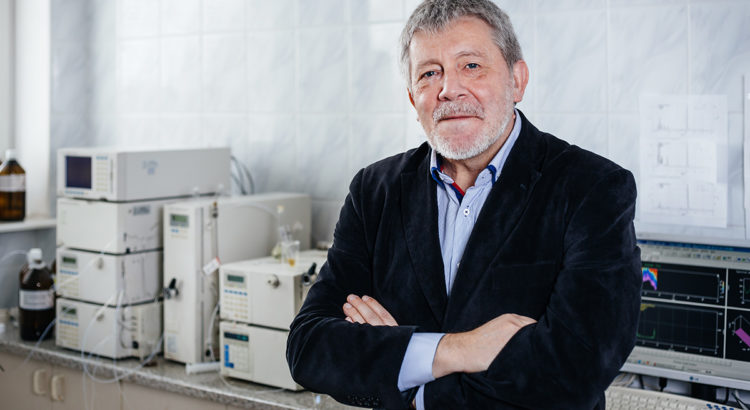During the visit in Hungary and Slovenia, Dr. Radosław Kowalski along with his research team – Dr. Beata Cejko, Sylwia Judycka and Michał Blitek – conducted a trial of air spawning of marble trout (Salmo marmoratus), thanks to Dušan Jesenšek a manager of a Slovenian fish hatchery in Tolmin (Ribiška družina Tolmin). (więcej…)
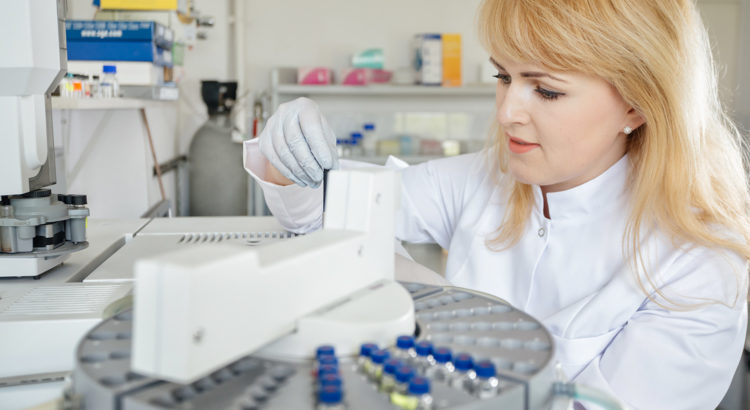
Prebiotics to alleviatie celiac disease
PhD student from the Institute of Animal Reproduction and Food Research PAS in Olsztyn investigates the influence of prebiotics-enriched gluten-free diet on alleviating harmful effects of celiac disease in children. The study will be aided by the funds obtained in the National Science Centre PRELUDIUM call. (więcej…)
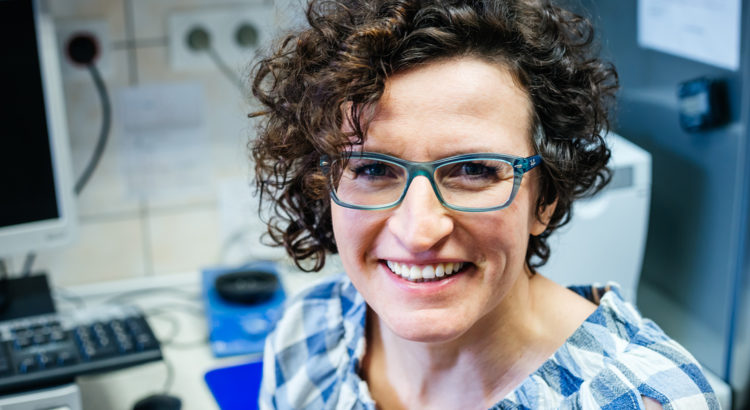
Maternal nutrition and health of next generations
Prof. Monika Kaczmarek, Head of Molecular Biology Core Facility
Challenges of contemporary medicine
So far it has been demonstrated that the nutritional status of mother may affect a normal development of the embryo and fetus in the womb, and after birth, determines health of the offspring. This September, English researchers published in Pediatric Obesity Journal a prognosis for 184 countries regarding obesity and related health problems in school children. It is estimated that without an adequate policy challenging current trends, by 2025 268 million children aged 5-17 will be overweight, with 91 million of them to suffer from obesity.
Infertility has always affected humans, yet unfortunately we can now observe a considerable decrease in the pregnancy rates caused by inter alia environmental factors. World Health Organization (WHO) clearly demonstrates that 10% of women worldwide are trying to get pregnant with no success, and this situation has not improved in the last 20 years.
Nutritional programming
It appears that the period from conception until the age of 3 is marked by increased sensitivity to environmental factors, such as lifestyle, diet and parents’ health status. The process in which nutritional status determines metabolic balance in the organism is called nutritional programming. So far it has been demonstrated that the nutritional status of mother may affect a normal development of the embryo and fetus in the womb, and after birth, determines health of the offspring. Proper „designing” of offspring within the process of nutritional programming has long-term prohealth effects and may prevent the development of diet-induced diseases such as cardiovascular disorders, obesity, hypertension and diabetes type II.
In the mother’s womb
It is interesting that excessive weight gain during pregnancy occurs more frequently than in the past century. Unfortunately for us, children of women who put on too much weight during pregnancy were observed to suffer from an increased risk of obesity at the age of 34. Therefore, women having a Body Mass Index (BMI) within the normal range (18,5-24,9) are recommended to gain 11-16 kg during pregnancy, while those with the BMI 25 – 29,9 and BMI ≥30 only 7-11 kg and 5-9 kg, respectively.
After birth
The effects of nutritional programming may be observed not only in the cells of an individual with improper eating habits, but – in the case of pregnant or lactating females – also in their children or grandchildren. Our research based on animals fed a strict diet during lactation revealed inaccuracies in the development of offspring’s reproductive functions despite introduction of a proper diet in the future. These mice achieved sexual maturity later and suffered from a series of disorders affecting their fertility. What is interesting, the effects of improper diet of lactating females were noticeable even in the second generation – in grandchildren.
Even though the conclusions drawn from the studies based on mice cannot be directly translated to humans, there are numerous report on the influence of distorted metabolic balance on the increased risk of development of diabetes, obesity and other diseases in adulthood. Therefore, we shall bear in mind that during pregnancy we are advised to eat for two, but not twice as much, and not follow any strict diet. We shall obey this rule also when lactating. Then, let’s lead a considerate lifestyle and pass it on to our children and next generations.
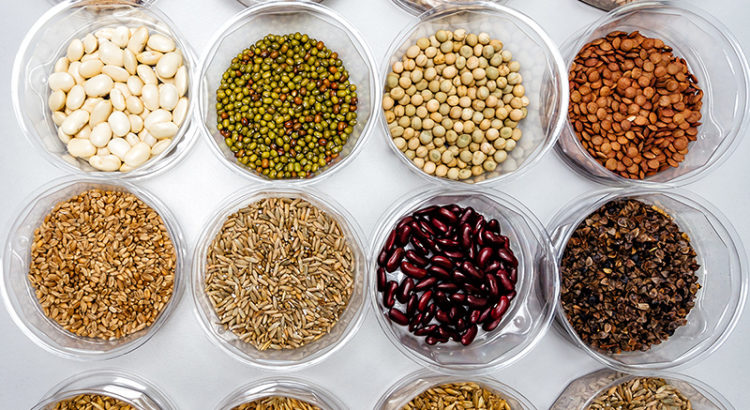
Polish researchers work to improve food quality
Institute of Animal Reproduction and Food Research PAS takes part in the activities aimed at improving the production of protein-rich plants.
EUR 416 million is waiting for the scientists investigating food and agriculture safety in 4 new calls of the Horizon 2020 programme. So far scientists from Poland have managed to win over PLN 28 million zlotys.
European Commission has just announced the call for proposals to 4 new contests in the area of ”Food safety, sustainable agriculture and forestry, marine, maritime and inland water research and the bioeconomy”, involving 51 topics. The call for proposals will last until February 14, 2017.
”Taking part in the call is worth considering, as the applicants may reach for funds from a total budget of EUR 416 million” – convinces Bożena Podlaska from the National Contact Point for Research Programmes of the EU”.
Currently, scientists and entrepreneurs from 47 research and business in Poland carry out 40 Horizon 2020-funded research and innovation projects associated with food safety.
Institute of Animal Reproduction and Food Research PAS takes part in the activities aimed at improving the production of protein-rich plants. “Protein2Food” project aims at increasing the consumption of protein among Europeans who, according to doctors and experts in nutrition, eat it in scarce amounts.
Research Institute of Horticulture in Skierniewice works to provide Europeans with a wide-open access to their most preferred berry fruits. The Consortium of 19 partners from Europe, China and Chile strives to develop new varieties of berry fruits which will better adjust to unfavourable growing conditions of the environment, abound it fruit and have improved quality.
Plant production constitutes one of many areas of interest of Polish researchers working within the framework of Horizon 2020. Warsaw University of Life Sciences participates in the development of new vaccines against bacteria and virus-derived animal diseases, which cause a considerable loss in animal breeding.
“These projects are only examples of possibilities provided by Horizon 2020 to scientists and entrepreneurs concerned with food and agriculture safety” – says Bożena Podlaska.
Every one interested is welcome to participate in the info day organized by the National Contact Point, when the experts will present the most recent calls, focusing on the guidelines for applicants and models of evaluation to be acknowledged.
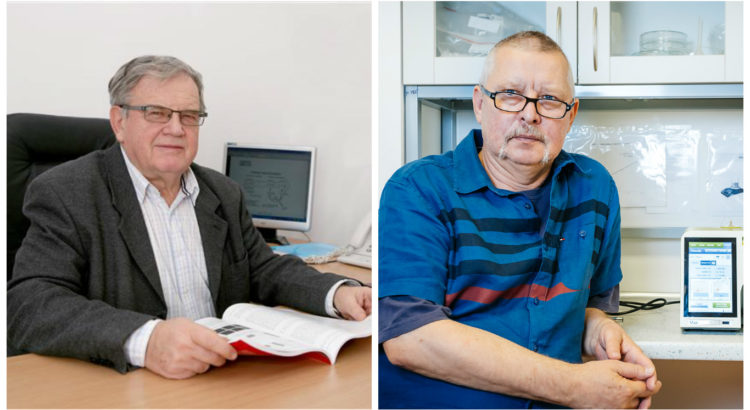
Prof. Adam Zięcik and Prof. Andrzej Ciereszko nominated PAS members
General Assembly of the Polish Academy of Sciences nominated new members of the Academy. This elite group in the Division of Biological and Agricultural Sciences comprises two distinguished scientists from the Institute of Animal Reproduction and Food Research in Olsztyn.
Prof. Adam Zięcik, long-term director of the Institute and PAS vice-president in 2013-15, was designated Ordinary Member of the Academy. Prof. Zięcik is a laureate of many awards and distinctions for his significant achievements for the Polish science, e.g. the Order of Polonia Restituta and Honorary Medal of the Polish Physiological Society. His research activity focuses on the physiology and endocrinology of animal reproduction, with the results being published in most prestigious journals worldwide.
Prof. Andrzej Ciereszko, head of Institute’s Gamete and Embryo Biology Department, was designated Corresponding Member of the Academy. Prof. Ciereszko specializes in the field of livestock biology and biotechnology of reproduction. His research team identified semen proteins of fish recognized as most important in Polish breeding. Prof. Ciereszko is also a co-author of an international patent procedure for the method of cryopreservation of salmonid fish semen, and its implementation into breeding programmes.
Congratulations!
Institute launches cooperation with Obihiro University of Agriculture and Veterinary Medicine in Japan
International success of the Institute in the KIC EIT Food call
A pan-European FoodConnects partnership, including the Institute of Animal Reproduction and Food Research PAS in Olsztyn, won in the competition of the European Institute of Innovation Technology on the Food4Future call: EIT Food. This is a spectacular success both when it comes to the prestige and financial matters, as the planned support of the EU for the entire consortium will reach 400 million euros within seven years. (więcej…)
Institute wins grants of National Centre for Science
![]()
Scientists from our Institute received funding for implementation of research projects submitted in the National Center for Science contests: PRELUDIUM 11 and OPUS 11.
OPUS is a funding opportunity intended for a wide range of applicants. The research proposal submitted under this scheme may include the purchase or construction of research equipment:
- prof. Jerzy Radecki – Redox active monolayers for exploring of anion recogntions processes in aqueous phase.
- dr. Mariola Słowińska – Characterization and biological role of cysteine rich secretory protein (CRISP) in the male reproductive system of turkey (Meleagris gallopavo).
- prof. Mariola Aleksandra Dietrich – Dynamic changes of carp seminal proteins and their modifications upon sperm maturation, hormonal stimulation and storage of semen.
- dr. Beenu Moza Jalali – Role of STAT signaling in porcine endometrial remodeling and embryo attachment.
PRELUDIUM is a funding opportunity intended for pre-doctoral researchers about to embark on their scientific career:
- Joanna Najmuła – Extracellular vesicles as an element of maternal-embryo communication during early pregnancy in pig- impact of carried miRNA on recipient cells.
- Natalia Drabińska – Influence of supplementation of gluten-free diet with the mixture of short and long chain inulin-type fructans on the profile of volatile organic compounds in urine of coeliac disease children.
